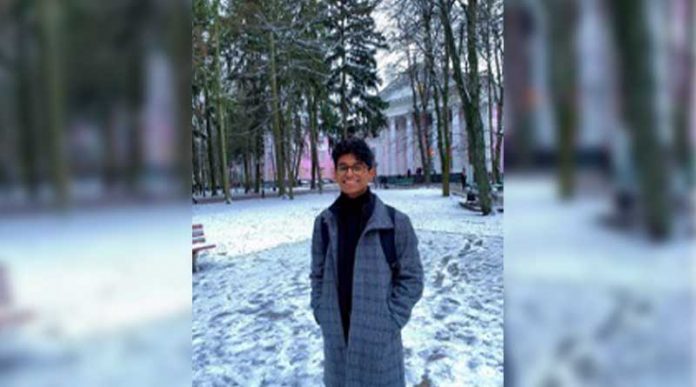From flipping through pages of history, to being a part of one
By Sakina Juzar
Vibrant campuses, rewarding communities and top-class education were some of the many promises made to international students aspiring to study in the Ukraine. However, there were no promises, preparations, or warnings about the harrowing journey they were to embark on, not knowing if they would see the next day.
On the morning of Feb. 24, Russia invaded Ukraine. According to the United Nations, the invasion has triggered Europe’s largest refugee crisis since World War II, with over 4.3 million Ukrainians leaving the country and a quarter of the population displaced.
Dr. Yuri Zhukov, Associate Professor of Political Science and Research Associate Professor at the Center of Political Studies at Columbia University, said the events of the invasion are absolutely tragic.
“Russia has launched an all-out assault against Ukraine that appears aimed at overthrowing the Ukrainian government and possibly killing or imprisoning much of its leadership,” he said.
Following that fateful day, Russia began its ground offensive into Ukraine, where shelling was heard in many Ukrainian cities in the east coast and from its northern border in Belarus. Not long after, Ukraine’s president enacted martial law.
After the news broke out, international students across the country scrambled in desperate attempts to escape. With an uncertainty about tomorrow, universities transitioned to online learning, while students focused on sustenance.
According to the Ukrainian State Center for International Education, there are around 80 thousand foreign students pursuing higher education in Ukraine as of late 2020. When the law was imposed, the center called on citizens to remain calm and prudent.
As the war commenced, there were growing reports and stories of students who are struggling to reach the evacuation routes and are appealing for assistance. Studying in the Sumy region of Ukraine, Indian student Aashiq Hussain Sarkar sent a desperate plea for safety through a tweet, with a video of the bombing, and tagged the relevant Indian authorities.
Similar stories have hailed from across the country. Medical student Azan Rizwan Kazi, studying in Kyiv, recounts his journey from his university dorms to home.
“I knew matters were about to spiral out of control very quickly. I booked my flight the very next day of the announcement without thinking twice,” said Kazi.
When the news first broke out, universities asked students not to panic and that a conflict of this nature was rather common to the region. Kazi said that initially students were warned against leaving the country, with the threat of expulsion.
However, soon enough, the universities came around. Due to subsequent pressure from international embassies in the Ukraine, students were granted temporary leaves from their institutions to fly home to safety.
Blackened and bombed-out apartment towers, families huddled together in subway stations. Downtown streets were silent, with shuttered cafes and nightclubs.
Additionally, airports were a prime target and were rendered unsafe.
“The airports were overflowing with students, who were not very sure what the next step was going to be,”” said Kazi.
The state had declared an emergency, which had greatly jeopardized the departure of these students.
“I will never forget those few days. We were fighting for our lives here,” said Kazi.
On his long and tedious journey from the dorm to the airport, Kazi said he was sad to leave behind years of hard work, a community and memories.
These students now have to fend for themselves to complete their education. Kazi plans to apply for colleges in Europe, hoping to finish his senior year.
He added that the pandemic and the current crisis have greatly impacted his motivation and passion for studying. It is important to realize that there is much more than just education at stake. There are still people who are defending their country or stuck in shelters.
“We were the lucky few to leave the country when we could,” Kazi said.
“However, we still worry and pray for our classmates and their safety,” he added, maintaining a hint of concern in his voice.


















